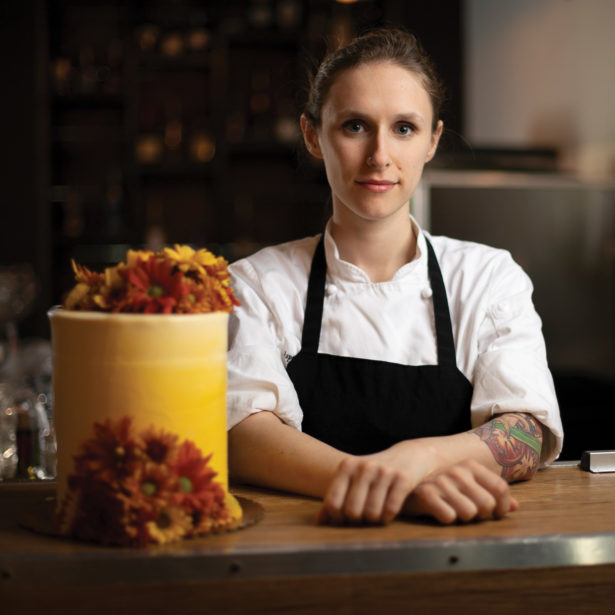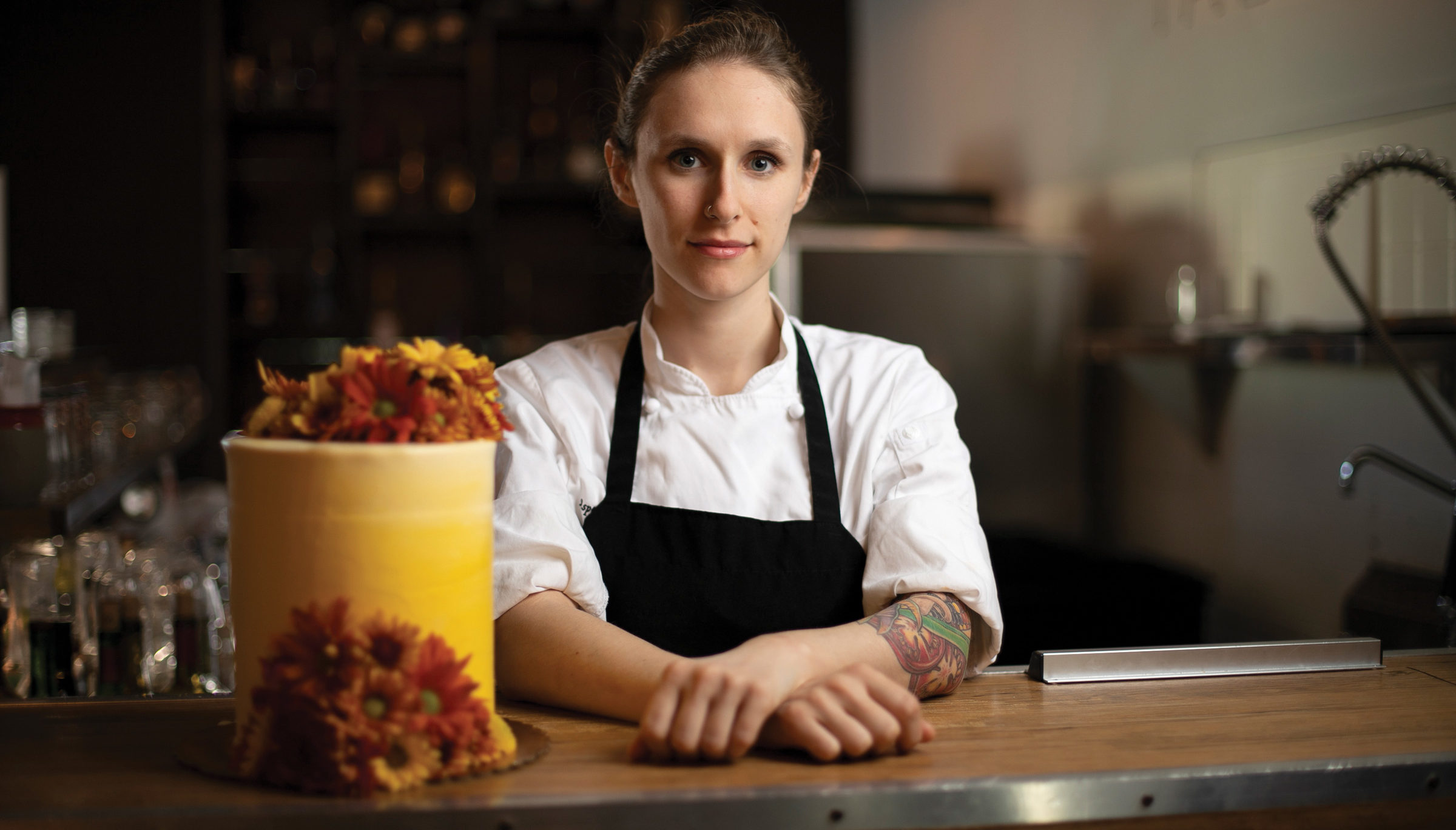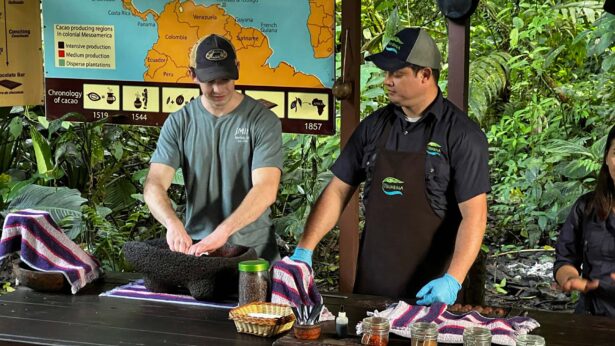By Amy Blakely | Photos by Guy Schafer
Lauren Holley Cox is preparing to open a home decor store called ColorMeCozy in downtown Pulaski, just blocks from the UT Southern campus. She’s excited but nervous because she’s never run a small business before.
Asheton Pierce is the owner of Over Yonder Boutique, a mobile clothing boutique that operates out of a box truck. She’s been a one-woman show for just over a year, but she envisions multiple trucks, employees and bookings galore.
Aspen White is a professional pastry chef who runs Crumb, a catering company that specializes in wedding cakes, custom desserts and other delicacies. She’s been in business since March and wants to open a storefront in Pulaski soon.
These entrepreneurs, along with Mace Crye of Second Street Coffee House and Keri Golden of The Southern Table in Pulaski, are the five small-business owners participating in the first Small Business Mentorship Program administered by UT Southern’s Turner Center for Rural Vitality. Each will be matched with a board of local businesspeople who will coach them as they open or expand their shops.
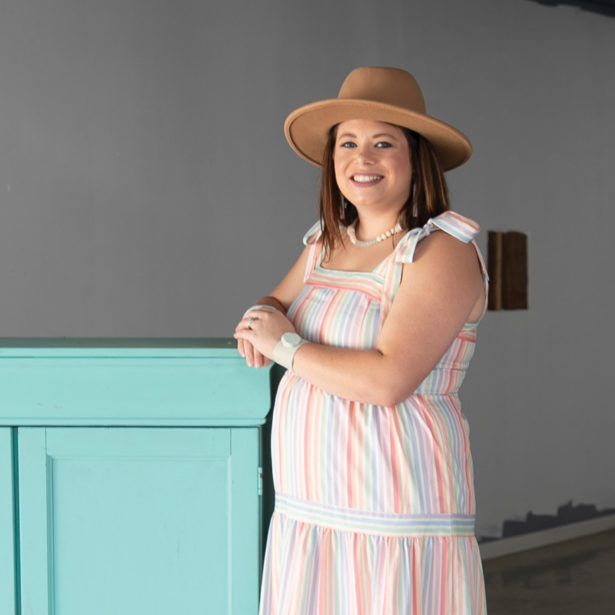
Turner Center Executive Director Allen Stanton says small businesses are the lifeblood of small communities like Pulaski. They are typically specialty businesses—not chains—owned and operated by local residents. People often choose to visit communities just to go to such places.
The problem, Turner Center Program Officer Rebecka Cronin says, is that 50 percent of small businesses close within five years of opening, either because they lacked a well-thought-out business plan or because they made common missteps.
Earlier this year, Stanton charged Cronin with devising a mentorship program as part of the Dan Speer Initiative for Business Development to support entrepreneurship in rural, South Central Tennessee.
Cronin researched other efforts around the country, considered what could be done within the Turner Center’s modest budget and suggested pairing fledgling local business owners with established businesses owners in the community.
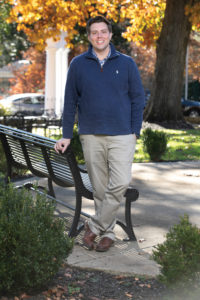
“I thought it was brilliant,” Stanton says.
In September, the Turner Center called for applications from privately owned businesses in operation for five years or less with fewer than 20 employees.
Hoping to recruit five mentees, Stanton and Cronin crossed their fingers there’d be sufficient interest.
They got 10 applicants.
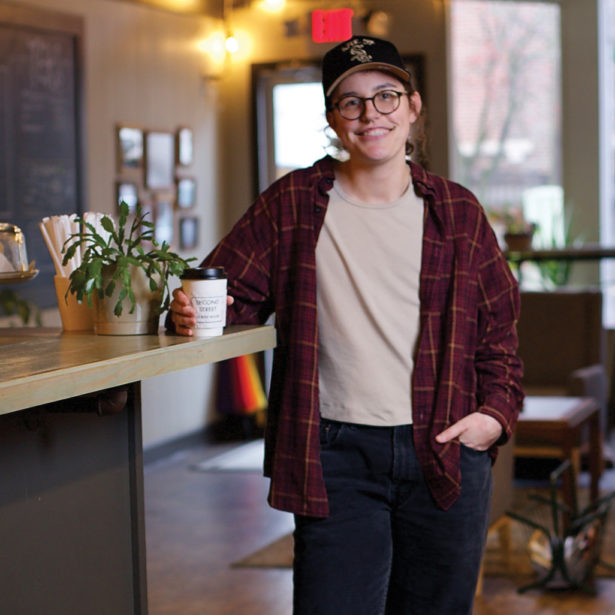
“It was a nice vote of confidence right out of the gate,” Stanton says.
A committee—Stanton and Cronin, along with civic leaders and business owners—chose the first class of mentees. They looked for entrepreneurs who had a clear understanding of their strengths and weaknesses.
Support from established businesses was strong, and Stanton and Cronin identified more than 30 would-be mentors, including business owners, CPAs, bankers, lawyers and realtors.
One of those is Ben Jackson, the branch manager and commercial lender at the Pulaski branch of the Bank of Frankewing.
“This seemed like a great opportunity to partner with UT Southern on a program that not only helps small local businesses but also gives me an opportunity to give back to some great people in our community,” he says. “It’s not about the bank getting customers out of this program but more being a resource to help the small business survive and, hopefully, thrive. We believe that successful small businesses lead to a successful community.”
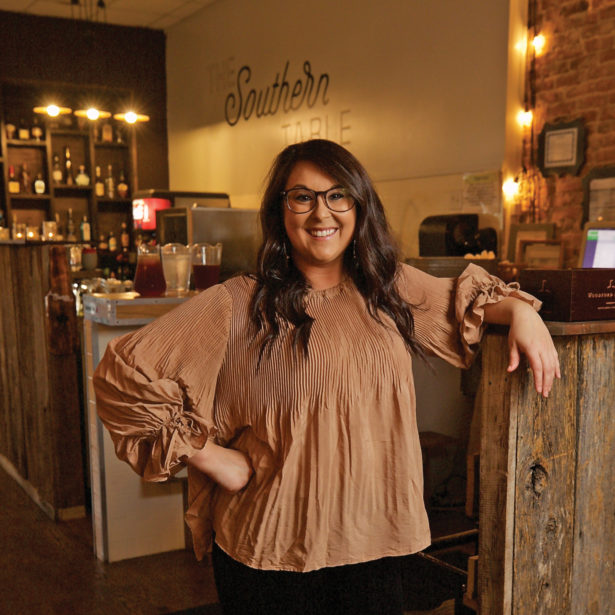
In mid-October, the mentees and mentors gathered at UT Southern for a speed dating-style session to match needs to expertise. After that, each mentee was matched with a board of five or six mentors.
The mentees and mentors will meet monthly for six months.
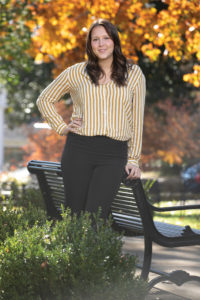
“Every single month the mentees will create an agenda that meets their needs,” Cronin says. Non-disclosure agreements will be signed so both sides can feel free to discuss all aspects of their businesses.
Cox, of ColorMeCozy, says she wants “to learn all I can to make a successful business but also push through even when things get hard.”
Pierce, of Over Yonder Boutique, has questions about expanding: “Within the next few years, I hope to have multiple mobile shops on the highway. I am eager to learn more about market penetration, business financials, increasing customer engagements, along with other business-related subjects.”
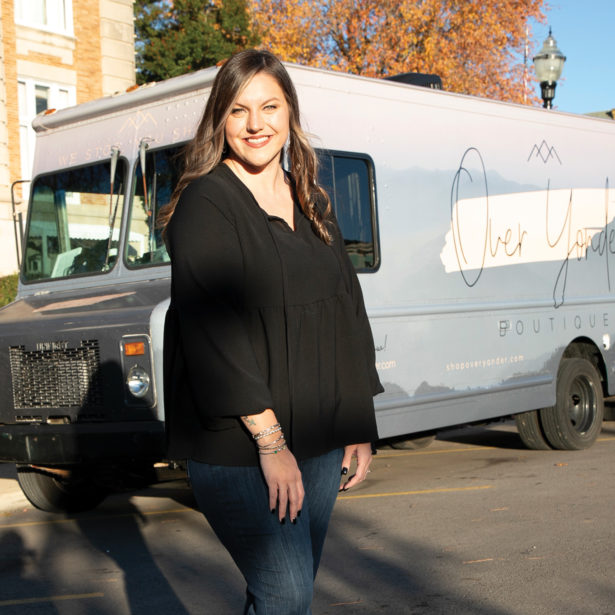
White, of Crumb, needs some advice about juggling a full plate: “I am a single parent to two young children, I work full time, and I run my business as well, which gets hectic. I would love advice on how to balance all of that well.”
Buoyed by the enthusiasm they’ve seen, Stanton and Cronin are already considering how the mentorship program might expand to other counties, involve more university personnel and offer programs catering to specific sectors, such as agribusiness or tourism.
For small business owners like Cox, that’s welcome news.
“I have such hope and vision that one day we can have people shop and eat around the Pulaski square all weekend long,” she says. “I think this mentorship program and UT Southern will help us do just that.”
